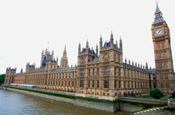His attack followed criticism from Punch Taverns chief executive Giles Thorley, JD Wetherspoon chair-man Tim Martin and Ian Burke, chief executive of Rank, that heavy-handed regulation and red tape were strangling their businesses; Thorley called for the chancellor, Alistair Darling, to go.
The leisure industry has been hit by a particularly tempestuous combination of economic and social factors, but there is little doubt that legislation - particularly the rules that relate to marketing - have the potential to make business even more difficult.
What should the government do to make life easier for sectors affected by what they claim is unfair legislation?
Gambling
Overhaul UK gaming taxation
Denis Mann, director of marketing at Aspinalls Club, says that gaming taxation - which at the top end is 50% on gross gaming wins - means UK casinos cannot compete on the international stage against destinations such as Las Vegas.
'Due to tax implications, we are simply not able to offer gamers worldwide-equivalent deals,' he says. 'Customers are, of course, not interested in our financial handicaps - that is our problem and not theirs. What we would appreciate, however, is some sort of level playing field.'
Alcohol
Resist knee-jerk reactions
Gavin Partington, head of communications at The Wine and Spirit Trade Association, says current legislation does not present much of a problem, but this is being threatened. 'Bans on price promotions, such as the one in Scotland, as well as consultations on advertising and pricing, are of particular concern,' he says. 'In Scotland, there are measures to make retailers specify where the shelves are going to be situated that sell alcohol; we are worried this may be extended South of the border.'
Automotive
Avoid eco-information overload
The EU Directive forcing car makers to include CO2-emission information on all promotional literature is exercising most manufacturers. It is a regulation they want removed, according to the Society of Motor Manufacturers and Traders. A spokesman says that the industry's own voluntary code, where this information is provided at point of sale in dealerships, is effective enough. Including this information on press ads and billboards is something 'they do not want', he adds.
Food
Be clear, consistent and patient
Nutrient profiling, which is currently being reviewed, is as great a concern as ever. 'We don't have much confidence in the outcome of the review, and [the rules on profiles] need to be sorted out,' says Julian Hunt, director of communications at the Food and Drink Federation.
Hunt also believes that restrictions on the advertising of HFSS food and drink products need time to 'bed down' before there are any 'knee-jerk reactions'.
Meanwhile, the impact of the European Directive on nutrition and health claims, which prohibits the use of the latter on packaging, has yet to be felt. 'While we support it, we do need greater clarity,' says Hunt.
Pubs
Use a regulatory 'light touch'
The smoking ban has hit the pub trade hard - figures from the British Beer & Pub Association show that pubs are closing at a rate of 36 a week, up 33% on last year. The organisation's chief executive, Rob Hayward, says the government seems intent on increasing the regulatory burden on pubs. 'Its proposals to target pubs with new red tape such as statutory codes of conduct and ratchet up taxes with its beer duty escalator will only make matters worse,' he argues. 'Such policies will only drive up costs for pubs and prices for punters. Government needs to wake up to what's happening in the real world of the pub.'
Pub operators are particularly concerned that the government will ban drinks promotions and happy hours, as well as demand 'cigarette-style' health warnings on drinks packaging, rather that allowing them to adhere to their own voluntary codes of practice.
What regulations would you like to see removed?


